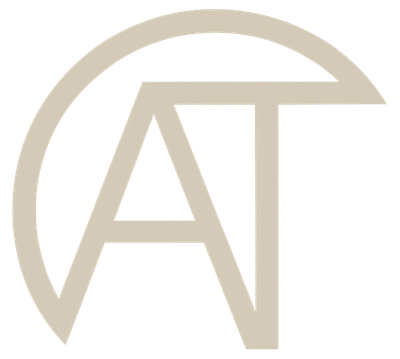AI is flipping the script on how we create and use software. Forget app stores and coding boot camps. Now, you can conjure up a custom app as easily as jotting down a quick note. These aren't watered-down widgets or clunky prototypes, but full-fledged, personalised tools built on the fly. Use them once, then toss them aside – like digital toothpicks. It's software that's as fleeting and tailored as your daily needs – disposable apps that put the power of creation in your hands, no coding required.
In the world of software, bigger has always seemed better. The apps and programs we use daily are designed to solve a multitude of problems for millions of users. It's how tech companies grow - by creating tools generic enough to appeal to everyone.
But what if you need something hyper-specific? Something just for you, right now?
Imagine you're planning a vacation and have a shortlist of 20 Airbnbs. You have your own unique set of priorities - maybe you value a quiet neighbourhood over proximity to attractions, or you're willing to trade a bigger space for a lower price. Instead of juggling spreadsheets or scribbling notes, what if you could "print" a simple app on the spot? One that lets you adjust sliders for each factor, weighing them according to your preferences, and then ranks your Airbnb options accordingly?
Oh, by the way, this is an actual example of something someone built using Claude.
This. THIS is my favorite Claude use case.
— Allie K. Miller (@alliekmiller) June 27, 2024
Take an ungodly amount of data and preferences, shove it into Claude, ask for an interactive decision-making bot, ask for scoring and reward mechanism, personalize as necessary.
Brands will now calibrate for human+AI decisions. pic.twitter.com/uhSZGQ8Brx
That's the essence of disposable apps. Apps crafted for a specific task and moment. Use them once, then toss them aside when you're done.
The AI Revolution in Personal App Creation
The future of software development is here, and it's powered by AI. We're entering an era where creating a custom app is as simple as having a conversation. No coding skills required, no complex development environments to set up. Just you, your ideas, and an AI ready to bring them to life.
This isn't about simplified coding languages or drag-and-drop interfaces. It's about describing what you want in plain English and watching AI transform your words into software. It's like having a 3D printer for apps, but instead of plastic filament, you're feeding it ideas.
Imagine having a world-class developer at your beck and call, ready to whip up any app you need, whenever you need it. These AI assistants can understand your needs, translate them into functional code, and even explain how it all works - all through a simple conversation.
Claude Artifacts: A Glimpse into the Future
Claude's sharable Artifacts offer a tantalising preview of this AI-driven app creation future. During a conversation with Claude, you can request and receive functional code snippets, web components, or even entire app structures. Need a quick script to analyse data? Or a simple web app to visualise information? Just ask, and voila - it appears before your eyes.
This goes beyond mere code generation. These AI models understand context, can clarify requirements, and even suggest improvements to your initial ideas. It's like brainstorming with a tireless "10x developer" who can instantly prototype your ideas.
From Idea to App in Minutes
The implications of this shift are profound. Suddenly, the gap between having an idea and creating a working app has shrunk from months to minutes. You no longer need to learn coding, understand software architecture, or keep up with the latest development frameworks. All you need is a clear idea of what you want to achieve.
This doesn't mean everyone will become a full-time app developer overnight. Rather, it means that creating a custom app for a specific task could become as common as writing an email or making a spreadsheet. It's about having the power to quickly materialise digital solutions tailored to your exact needs.
Why Disposable Apps, Why Now?
The rise of disposable apps isn't happening in a vacuum. It's the result of a perfect storm of technological advancements and changing user needs. Let's break down the key factors driving this shift:
- AI That Understands You
Today's AI doesn't just process commands; it understands context, nuance, and intent. When you describe an app idea to an AI like Claude or ChatGPT, it's not just listening for keywords. It's grasping the problem you're trying to solve, considering edge cases, and even anticipating features you might need but haven't thought of yet.
This level of comprehension means you can explain your app idea as you would to a human developer, complete with all the "ums," "ahs," and mid-sentence course corrections. The AI will keep up, ask for clarification when needed, and help refine your idea into a workable app concept. The quality of LLMs is finally at a point where natural communication works exceptionally well.
- The Complexity Paradox
Modern software is incredibly powerful, but with that power comes complexity. We've all experienced the frustration of knowing an app can do something, but not being able to figure out how. Or worse, it doesn't handle an edge case we need for a particular task.
Disposable apps flip this script. Instead of wading through feature-bloated software, you get exactly what you need, nothing more, nothing less. It's software tailored not just to your specific problem, but to your way of thinking about that problem.
- The Need for Speed
We often don't have time to search for the perfect app or learn a new piece of software. Sometimes, we need a solution now, for a problem we might never encounter again.
Disposable apps could shine in these moments. Need a quick way to split expenses for a one-off group trip? Or a custom countdown timer for a unique project? With AI-driven app creation, you can have a solution up and running in minutes, use it for as long as you need, and then discard it without a second thought. Just like a digital toothpick.
- The Personalisation Revolution
We live in an age of personalisation. Our music playlists, our news feeds, and even our coffee orders are tailored to our individual preferences. Yet when it comes to software, we're often stuck with one-size-fits-all solutions.
Disposable apps bring the personalisation revolution to software. They allow us to create tools that fit our unique workflows, thought processes, and needs. It's not just about solving a problem; it's about solving it in a way that makes sense to you.
The New Era of Digital Problem-Solving
As AI continues to evolve, we're entering an era where our ability to solve digital problems is limited only by our imagination. Need an app to manage your unique workflow? Or a tool to analyse your personal data in a specific way? Instead of settling for generic solutions or spending hours searching for the right app, you can simply describe your needs to an AI and watch your custom solution come to life.
This AI-driven approach to app creation is more than just a cool tech trick. It's a fundamental shift in how we interact with and shape our digital world. We're moving from a world of fixed, general-purpose apps to one of fluid, personalised digital solutions. The question is no longer "Is there an app for that?" but "How quickly can I create an app for that?"
This shift opens up exciting possibilities, but it also raises new questions. How will this change the software industry? What new skills will we need to thrive in this world of disposable apps? Will we see a rise in digital literacy as more people become comfortable with the idea of creating their own software solutions?
As we stand on the brink of this AI-powered app revolution, one thing is clear: the future of software is personal, it's disposable, and it's limited only by our imagination. Welcome to the world of disposable apps - your digital Swiss Army knife, created on demand by AI.
Subscribe to my newsletter to get the latest updates and news





Member discussion